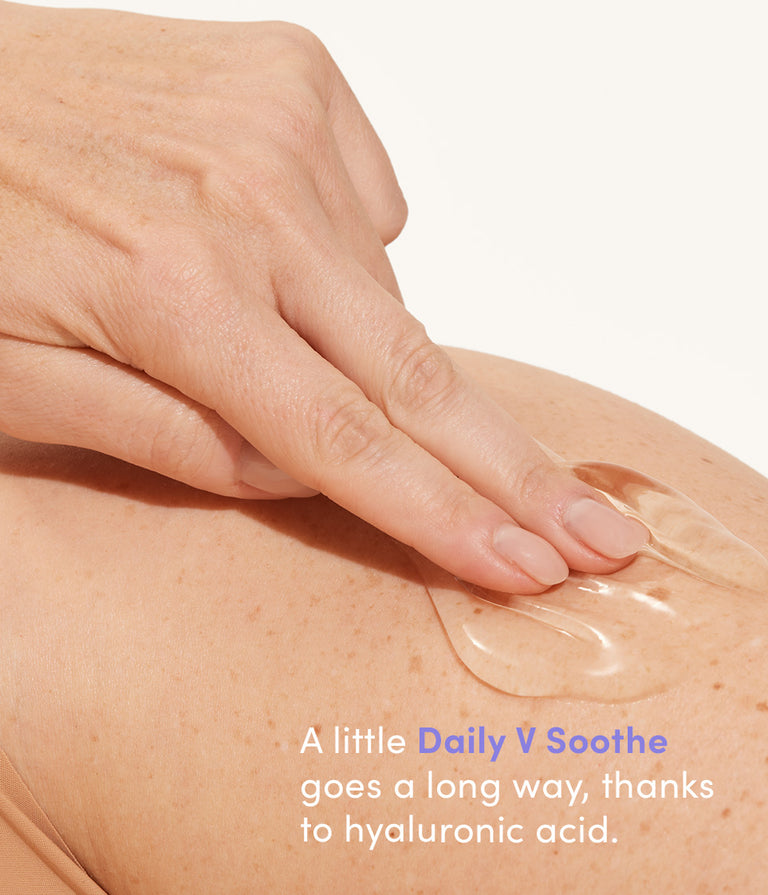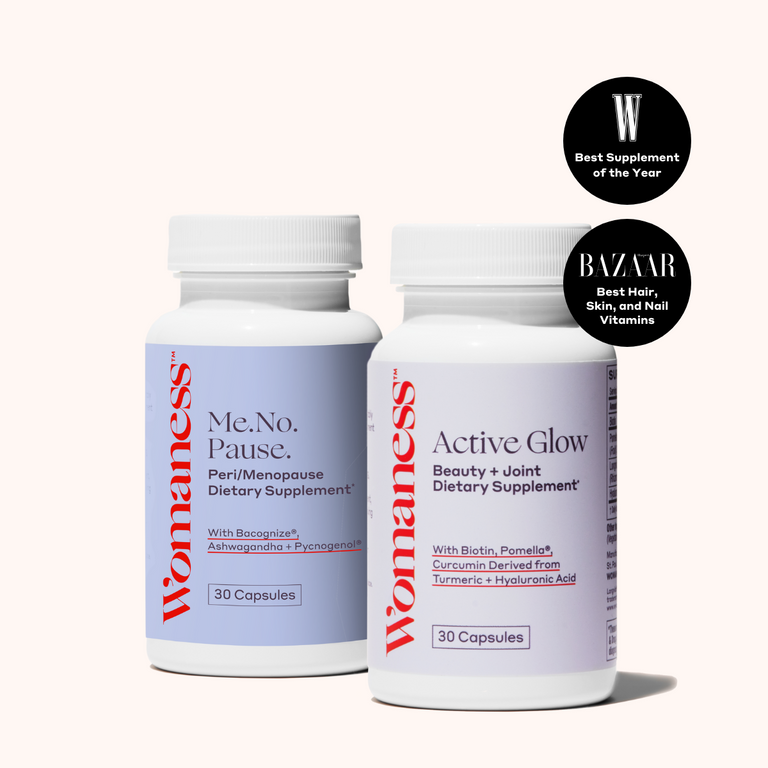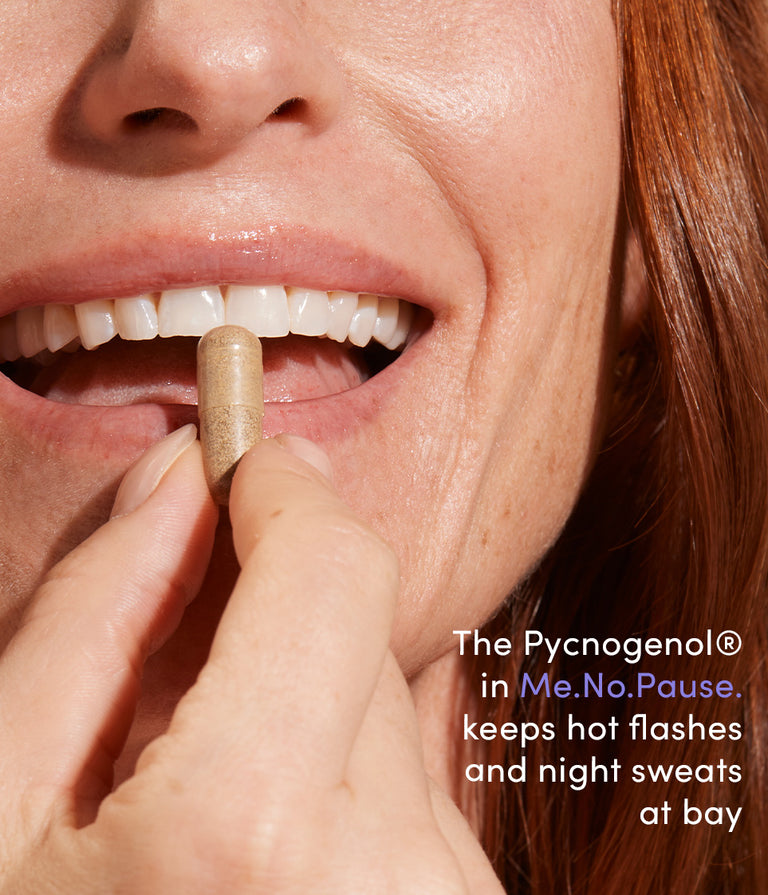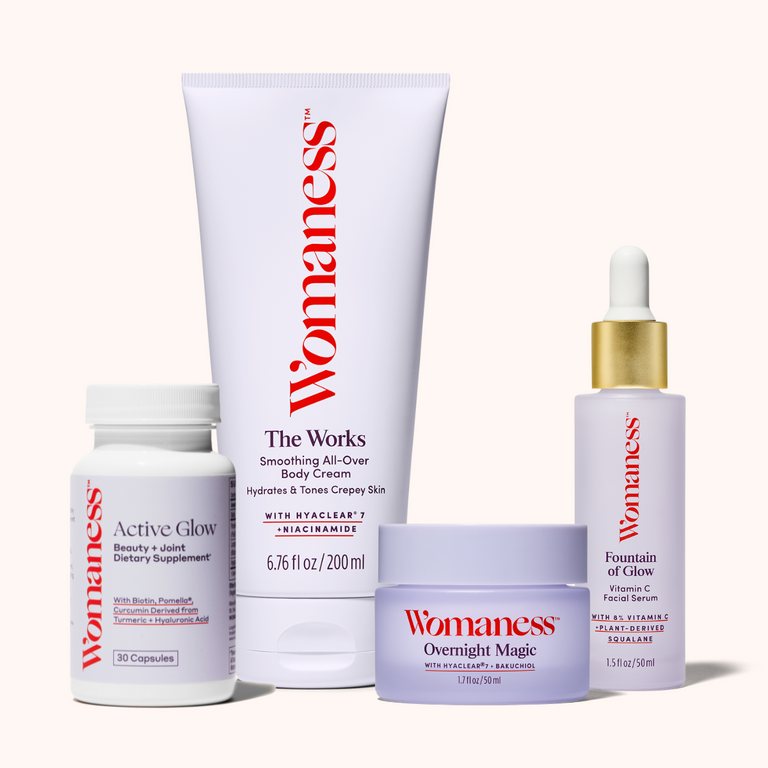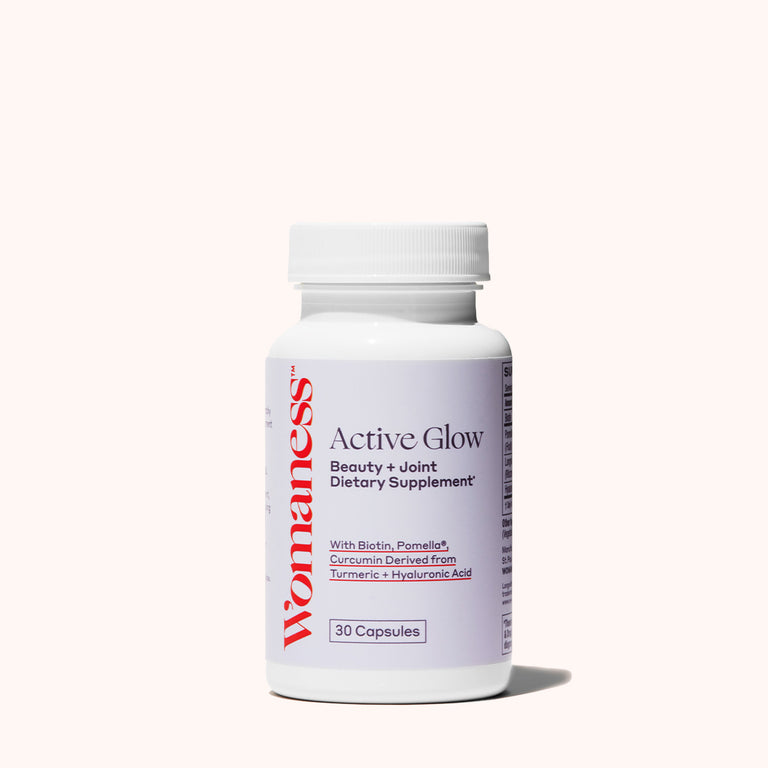By Michelle Jacobs 5-Minute Read

Perimenopause and menopause are natural stages of a woman's life—but they are (still!) accompanied by a variety of myths and misconceptions. Here are 32 common myths about perimenopause and menopause, along with accurate information so you can finally debunk them.
Myth 1: Menopause happens suddenly.
Fact: You are not considered in menopause until you have not had your period for one whole year. Perimenopause is the first stage and is a gradual process that typically occurs over several years leading up to the final menstrual period. Perimenopause can last up to 10 years.
Myth 2: Menopause only affects older women.
Fact: While menopause usually occurs in your late 40s to early 50s, it can happen earlier due to various factors, including genetics, medical conditions, or surgery.
Myth 3: All women experience severe symptoms.
Fact: While some women may experience severe symptoms, others may have milder or even no symptoms at all during perimenopause and menopause.
Myth 4: Menopause leads to weight gain.
Fact: Hormonal changes can affect metabolism, but weight gain is not inevitable. Lifestyle factors, such as diet and exercise, play a significant role. But this is one of the biggest complaints women have as they enter this phase.
Myth 5: Menopause causes decreased sexual desire.
Fact: Hormonal changes can influence libido, but vaginal dryness can also make sex uncomfortable, which affects libido. Vaginal moisturizers, lubricants and the use of sex toys like vibrators can help.
Myth 6: Hot flashes are the only symptom.
Fact: Hot flashes are common, but other symptoms may include mood swings, sleep disturbances, vaginal dryness, and changes in menstrual cycle patterns.
“You are not considered in menopause until you have not had your period for one whole year.”
Myth 7: Menopause causes memory loss and cognitive decline.
Fact: Some women experience an issue called “brain fog” which may be due to the drop of hormones in the brain.
Myth 8: Hormone replacement therapy (HRT) is the only treatment.
Fact: HRT can be effective for managing your symptoms, but there are other options, including lifestyle changes, non-hormonal supplements, and natural remedies. Womaness carries many products for symptoms that do not contain hormones of any kind.
Myth 9: You can't get pregnant during perimenopause.
Fact: Pregnancy is still possible during perimenopause, as ovulation can occur irregularly. It's important to continue using contraception if you do not desire pregnancy.
Myth 10: Menopause means the end of menstruation-related health concerns.
Fact: Postmenopausal women still need to monitor their health, as certain conditions (e.g., osteoporosis, heart disease) may become more relevant.
It's important to consult with your women's health professional for accurate information and personalized guidance regarding perimenopause and menopause, as individual experiences can widely vary.
Myth 11: Menopause only affects physical health.
Fact: Menopause can impact both physical and emotional well-being, potentially leading to mood swings, anxiety, and depression.
Myth 12: Hormone therapy is the same as hormone replacement therapy (HRT).
Fact: Hormone therapy can include various types of hormonal treatments beyond just replacement, such as low-dose therapies and localized treatments.
Myth 13: Menopause causes inevitable hair loss.
Fact: Hormonal changes may affect hair thickness, but not all women experience significant hair loss during menopause. There are also products you can try that help with thinning hair or hair loss.
Myth 14: Menopause causes facial hair growth.
Fact: While hormonal changes might cause some women to experience increased facial hair, it's not a universal symptom.
“Pregnancy is still possible during perimenopause, as ovulation can occur irregularly.”
Myth 15: Menopause causes permanent weight gain.
Fact: Weight is affected by hormonal changes and fluctuations in cortisol. There are supplements and in some cases medication that can help with weight management. Of course, diet and exercise may also help.
Myth 16: Menopause signals the end of intimacy.
Fact: Open communication and exploring new ways to connect can help maintain intimacy during menopause.
Myth 17: Menopause leads to decreased productivity at work.
Fact: Menopause doesn't inherently affect work productivity; some women may experience challenges, but others continue to excel.
Myth 18: Menopause is a disease that needs to be treated.
Fact: Menopause is a natural biological process, not a disease. Treatments and natural solutions are aimed at managing symptoms, not curing menopause.
Myth 19: You can't use birth control methods during perimenopause.
Fact: Birth control can still be effective during perimenopause to prevent unwanted pregnancies if needed. In some cases, doctors could prescribe low-dose birth control as a form of hormone replacement.
Myth 20: Menopause happens at the same age as your mother's.
Fact: While genetics can play a role, individual factors such as health and lifestyle can influence the timing of menopause.
“While genetics can play a role, individual factors such as health and lifestyle can influence the timing of menopause.”
Myth 21: You don't need a gynecologist after menopause.
Fact: Regular gynecological check-ups remain important for postmenopausal health, including monitoring for potential issues.
Myth 22: Menopause causes all women to become moody and irritable.
Fact: Mood changes vary among women, and not all experience heightened irritability during menopause.
Myth 23: Menopause means the end of orgasms.
Fact: Low testosterone levels may affect your ability to orgasm. But it doesn't mean you're done with them! Pelvic floor therapy may help you have a better experience, as may the use of vibrators and lubricants.
Myth 24: Natural supplements are always safe for managing menopause symptoms.
Fact: Most natural supplements are perfectly safe (and at Womaness, they're hormone free), but it's always good to check with your doctor for drug interactions and dosage.
Myth 25: Menopause causes women to become less active.
Fact: Physical activity remains important during and after menopause for maintaining overall health and well-being. Weight-bearing exercises are the most helpful for overall help and to ward off osteoporosis.
Myth 26: Menopause leads to an automatic decrease in bone density.
Fact: Hormonal changes can affect bone health, but diet, exercise, and supplements can help prevent significant bone density loss. It's critically important that you get your bone density tested out as you age. Hormonal changes do affect bone density.
“Low testosterone levels may affect your ability to orgasm. But it doesn't mean you're done with them!”
Myth 27: Menopause only affects women's health.
Fact: Menopause can impact the lives of partners and families as well, influencing relationships and dynamics.
Myth 28: You can't get pregnant after a certain age.
Fact: Pregnancy is still possible until your menopause is confirmed, meaning you should still use contraception if you're not looking to get pregnant.
Myth 29: Menopause symptoms are the same for every woman.
Fact: Symptoms can vary widely in type and severity, making each woman's experience unique.
Myth 30: Menopause causes heart disease.
Fact: While hormonal changes can influence heart health, lifestyle factors like diet and exercise play a more significant role in heart disease risk.
Myth 31: Perimenopause will only last for one year.
Fact: The perimenopause timeframe for most women is around two to three years. But some women may experience it for a longer time period (sometimes up to 10 years).
Myth 32: Once menopause is over, all your symptoms disappear.
Fact: Once you're in menopause, it's never really over. Hormones continue to decline and the effect of those declines continue to affect your brain, bone, heart health, and other cancers.
Remember that consulting with a healthcare professional is crucial for accurate information and personalized guidance regarding perimenopause and menopause.
At Womaness, we highly recommend treating any symptoms you have. There is never any reason to suffer in silence. There are natural solutions for skincare, supplements, and sexual wellness available at womaness.com or talk to your doctor about hormone testing and potentially HRT remedies.
More For You
The Stages of Menopause
Surprising Symptoms, Real Solutions
Perimenopause: All You Need To Know


